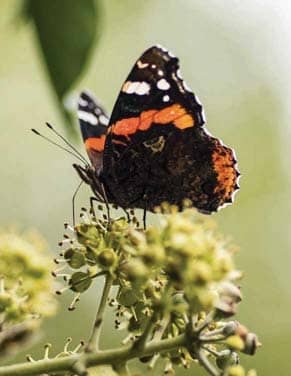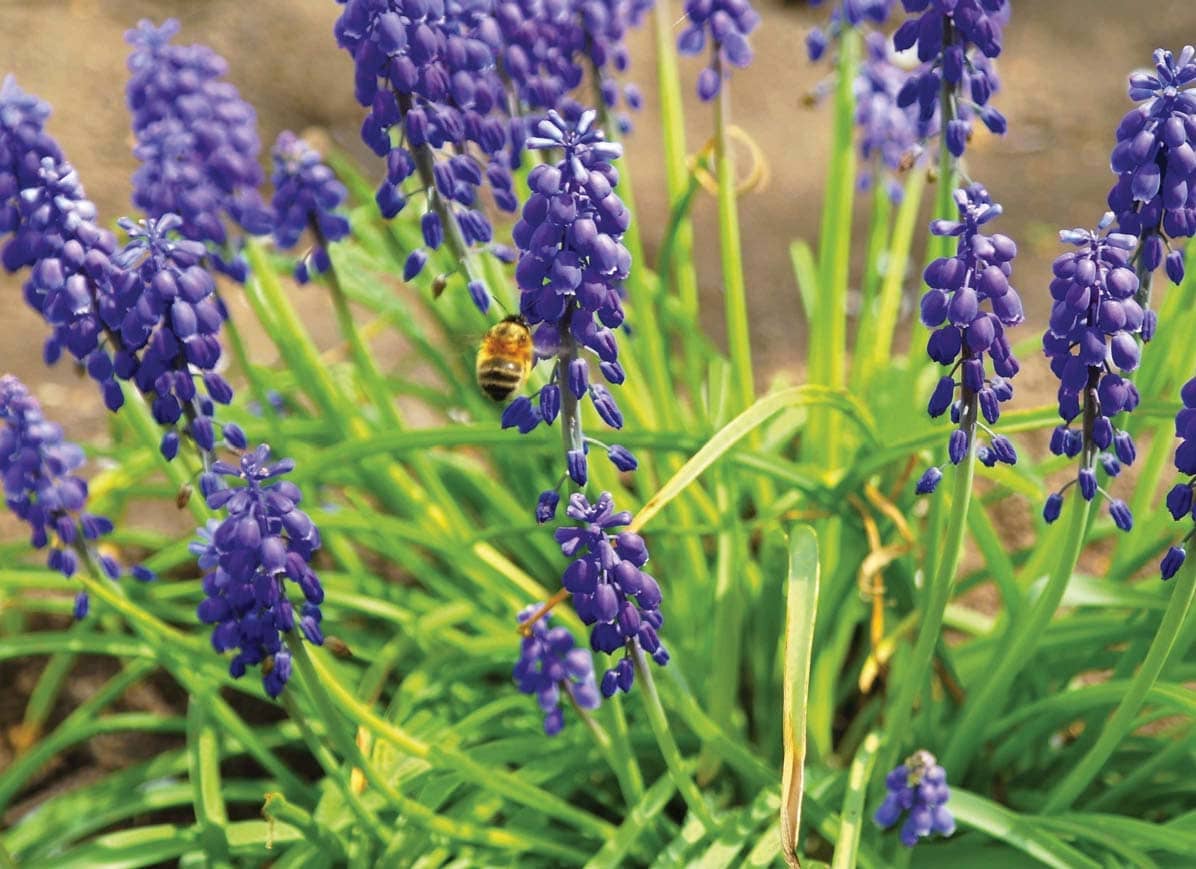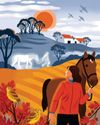Versuchen GOLD - Frei
Plant Britain BULBS FOR BEES AND BUTTERFLIES
BBC Countryfile Magazine
|November 2021
Autumn is the ideal time to plant bulbs for an uplifting display of colour next spring and summer. But how do you choose the best flowers to benefit insect pollinators? Wild gardener and insect ecology expert Dave Goulson reveals his favourites

Usually the first one I see is sipping from the patch of grape hyacinths next to my drive, often competing with hairy-footed flower bees and bumblebee queens for the sweet nectar.
Instead, as I write, the days are drawing in fast and the last pollinators of the year – red admiral butterflies, honeybees and drone flies – are stocking up on sweet nectar from the ivy blossom in my garden hedge that will fuel them through the winter. I need to collect up my squashes and pumpkins, store my root crops in a clamp, and carefully pack apples into crates for the winter. The garden plants, too, are drawing in their resources, shedding leaves and swelling tubers, bulbs and corms beneath the ground.

Spring may seem a long time away right now, but if you want to maximise the chances of having lovely insects in your garden, and of attracting many other spring pollinators, October is the time to get planting, and as this issue comes out in late October, there’s no time like the present.

BULB BEGINNINGS
Diese Geschichte stammt aus der November 2021-Ausgabe von BBC Countryfile Magazine.
Abonnieren Sie Magzter GOLD, um auf Tausende kuratierter Premium-Geschichten und über 9.000 Zeitschriften und Zeitungen zuzugreifen.
Sie sind bereits Abonnent? Anmelden
WEITERE GESCHICHTEN VON BBC Countryfile Magazine

BBC Countryfile Magazine
Manors and meadows
This December marks 250 years since Jane Austen's birth. To celebrate, Jack Watkins ambles around Chawton, where the writer penned novels that changed fiction forever
7 mins
December 2025

BBC Countryfile Magazine
TOP 10 ROYAL RESIDENCES
Castles, palaces and stately homes open a window into the history and private lives of the British monarchy
9 mins
December 2025

BBC Countryfile Magazine
Your countryside
HAVE YOUR SAY ON RURAL ISSUES
1 mins
December 2025

BBC Countryfile Magazine
Community spirit
Rural pubs across Britain are closing at an alarming rate - but local people are fighting back to save inns that have been at the hearts of their villages for centuries. Vivienne Crow orders a pint
4 mins
December 2025

BBC Countryfile Magazine
Gift ideas for nature lovers
Find inspirational and thoughtful presents for all the family in our pick of top outdoor gear and a round-up of this year's best nature and wildlife books
2 mins
December 2025

BBC Countryfile Magazine
Toad numbers are in freefall.It's in our power to save them
After becoming engaged at Christmas in 1998, my new fiancé and I were confronted by an enormous toad on the way to meet the vicar.
2 mins
December 2025

BBC Countryfile Magazine
Conquer fell running
Infamously tough yet famously friendly, the sport of fell running will take your fitness to new heights amid the wildest landscapes. Here's our beginners' guide
3 mins
December 2025

BBC Countryfile Magazine
A glorious haunting
They lived in the same village and shared the same dreams – just 60 years apart.
6 mins
December 2025

BBC Countryfile Magazine
The big questions answered
Across the UK, but particularly in the southeast of England, giant and featureless buildings are springing up.
13 mins
December 2025

BBC Countryfile Magazine
Away in a manger
While most of us down tools and pick up the mince pies, a farmer's work doesn't stop for the festive break.
5 mins
December 2025
Translate
Change font size

